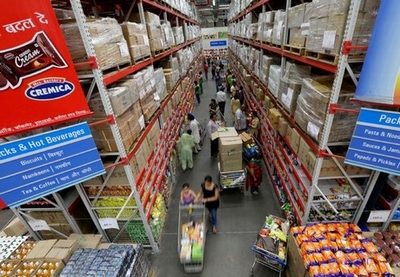
Wal-Mart announced that it was ending its joint effort with Bharti Enterprises of India to operate 20 wholesale “cash and carry” stores that sell to other businesses like retailers, hotels and restaurants. Wal-Mart plans to buy Bharti’s 50 percent stake in the venture, and the two companies will operate independent businesses in India. That Wal-Mart kept the wholesale business, long seen as a way to learn about India’s fragmented retailing sector, suggests it has not entirely ended its hopes of eventually selling at a retail level.
Wal-Mart’s chief executive for Asia, Scott Price, said this week that the Indian government’s regulations requiring foreign retailers to buy 30 percent of products from local small and midsize businesses were the “critical stumbling block” to opening its trademark consumer stores. “I don’t understand how this 30 percent small and medium enterprise can be executed,” Mr. Price said in an interview on Monday at the Asia-Pacific Economic Cooperation forum in Bali, Indonesia, The Associated Press reported. He said that Indian retailers were not required to follow the same rule, which made it too difficult for outsiders to make money, because no enterprise small enough to meet the government’s requirements had the capability to produce on the scale that a giant retailer requires.
“For Wal-Mart, there has been frustration brewing for a long time about the obstacles to doing business in India and the changing configurations of what it could do and what it couldn’t do,” said Devangshu Dutta, chief executive of Third Eyesight, a retail consulting firm based in Bangalore. “To just continue to pump in money without reflecting on this would be pointless.”
Only 4 percent of India’s $500 billion retail market is controlled by large, Western-style chain stores. In China, the share is about 20 percent and in Brazil 36 percent. India’s tiny operators have few of the inventory controls of their larger brethren, and much of the country’s food spoils before reaching consumers — an unfortunate reality in a nation in which nearly half of all children are malnourished.
Many foreign companies have found India’s endemic corruption difficult to keep out of their operations. Since American law requires top executives to ensure that their international operations remain free of corruption, executives in the United States have taken an increasingly dim view of doing business in India, with its low profits and constant legal worries.





